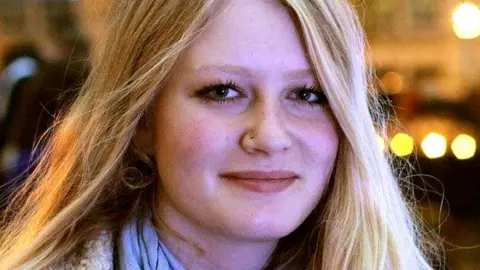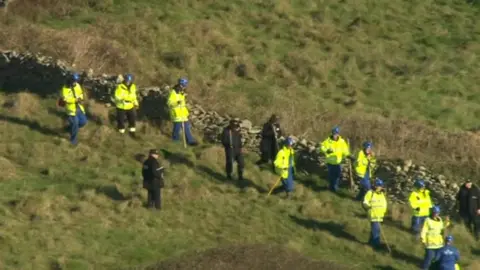Gaia Pope's family call for Dorset Police sex offences unit
 PA
PAA specialist police unit should deal with serious sexual offences in Dorset, Gaia Pope's family has said.
Miss Pope, 19, was found dead 11 days after she went missing in Swanage, Dorset, in 2017. Her family have criticised police handling of her case.
More than 1,000 people have signed the family's petition calling for Dorset Police to set up a dedicated "rape unit".
The force insisted it was "absolutely committed" to supporting victims.
The inquest at Dorset Coroner's Court, which concluded on 14 July, heard Miss Pope was diagnosed with post-traumatic stress disorder after revealing she had been drugged and raped by a man when she was 16.
But her family told the inquest that she felt police did not believe her when she reported it and that pursuing any complaint would have been traumatic.
It concluded her mental health and lack of medical after-care probably caused or contributed to her death.
Her sister, Clara Pope Sutherland, said Dorset Police - and every force - should have a special rape and serious sexual offences (Rasso) unit, staffed by trained officers.
"[Victims] don't get the support that is necessary and they don't get heard," she said.

"As far as we're concerned, it started as justice for Gaia but there are so many other people who have gone through similar things to what Gaia went through.
"The thought that anyone could go through that again is completely unbearable.
"The series of events might be unique to Gaia but the experiences that she had were not," Miss Pope Sutherland said.
Senior Dorset coroner Rachael Griffin said she would write to the health secretary, Dorset HealthCare NHS Trust, Dorset Police and local councils urging them to make changes to prevent future deaths.
Following the inquest, Miss Pope's family criticised Ms Griffin after she ruled the jury could not apportion blame for her death on the police force's handling of the case.
Dorset Police said it already had specially-trained officers who interview and support victims of sexual offences, so it had no plans to create a further dedicated team.
It said while some forces operated dedicated units, the evidence for this leading to higher charge and conviction rates was not clear.

Follow BBC South on Facebook, Twitter, or Instagram. Send your story ideas to [email protected].
